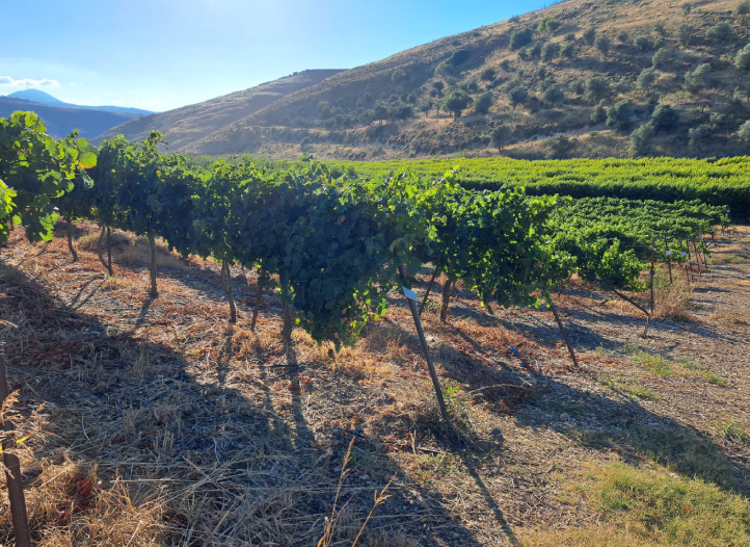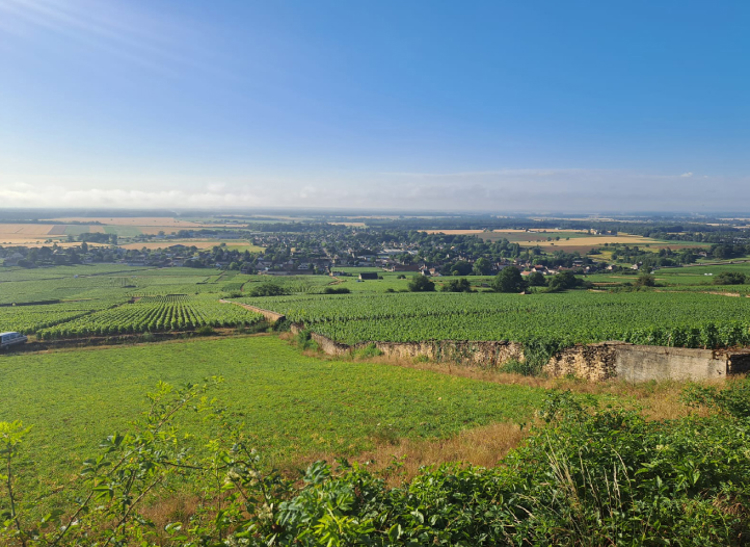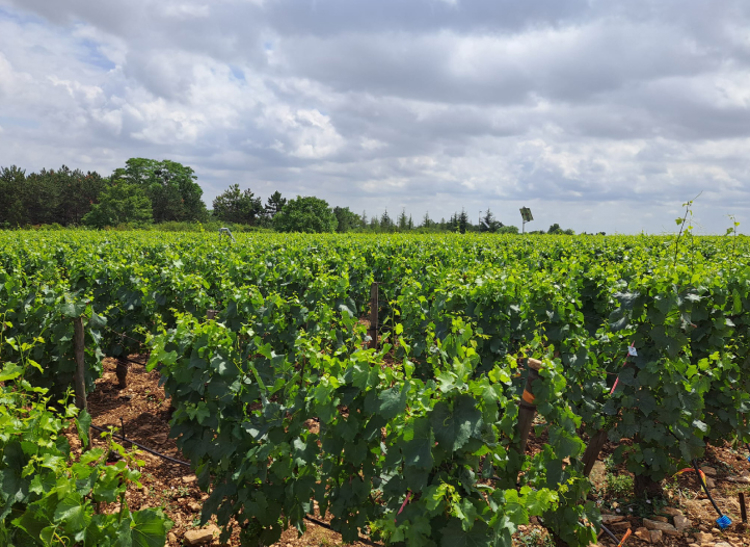How Global Warming is Impacting the World's Favorite Pink Drink
Rosé wines are on the rise. With its pink hue, light taste and refreshing blast of red berry flavors, rosé is a great partner for food and come summertime, pink is what you want to drink. In the past decade, rosé has been globally rebranded - with celebrities and luxury brands alike scooping up vineyards. Consumption of the pink drink has increased by 20% over the last 20 years, and is expected to rise by as much as 50% by 2035 due to growing demand.
France is the global leader in rosé production, and my country is home to an extensive range of rosé styles and affiliations. Yet climate change is having a severe effect on French wine production, and rosé producers have not been spared. French growers are navigating shorter winters, sporadic rainfall, frosts, droughts and higher summer temperatures, all of which present huge challenges to maintaining consistency in ripening, quality and yield.
Let’s take a deep dive into how climate change is affecting French rosé and other vineyards, and how precision irrigation and smart water solutions are helping growers overcome these challenges.

Climate Change Threatens French Vineyards
France has seen a 1.7°C increase in average temperature since 1900, with climate change accelerating since 1980. The results have been devastating for French agriculture in general, and wine production of all varieties, rosé among them, in French vineyards specifically. French growers and winemakers are facing existential threats to their production process, the typicity of their produce, the degree to which a grape’s signature characteristics are reflected in the wine, and to producing quality rosé wine sustainably.
Frequent and intense droughts early in the season pose the greatest threat to vineyards. Heat waves, short winters and severe frosts weaken the vines, making them vulnerable to disease and frost damage. Climate changes also disrupt grape development, impede yields and damage vine resilience.
Fortunately, winemakers can today choose from a variety of solutions that enable more resilient and sustainable winemaking while still respecting the traditions of the French wine industry, preserving the environment, and guaranteeing exceptional produce.

Best Practices for Fruitful Vineyards
Water management is a major issue in agriculture in general and viticulture specifically. Across France, the water deficit is intensifying, compromising the sustainability of rosé and other vineyards. Among the tools to mitigate this deficit is precision drip irrigation.
Wine grapes get their uniqueness from the “terroir” (sense of place), style and “millésime” (vintage). The color, aroma and complexity of rosé, white and red wines can be impacted by irrigation. For this reason, differing water and grape constraints need to be applied at various stages of vine development to produce different wine characteristics.
Correct irrigation management unlocks the full potential of the vineyard and does not alter the terroir, nor the vintage effect of the wine. Increasing control of the water supply ensures stabilized production and long term output.
In France, the irrigation of wine grapes is forbidden from May 1 to harvest for the wine appellations (AOC) whose specifications include the possibility of derogating from the irrigation ban. These appellations must request authorization to irrigate their vineyards each year. Only 30% of the appellations in France (grouped in the South of France) allow authorized irrigation in case of severe water deficit.
From August 15 to harvest, irrigation is totally forbidden on wine grapes and for all types of wines. Today, this prohibition is questioned for agronomic reasons and for the sustainability of vineyards.
Once vetoed by many in France, French vineyards are slowly turning to precision irrigation as an effective tool to mitigate the effects of climate change. Correctly implemented, drip can enable grapevines to achieve their full potential and contrary to opposing views maintain their terroir.
With precision irrigation, water can be uniformly distributed throughout a field on any topography, applying the optimum amounts of water and nutrients to the root zone of a plant exactly as required to meet a crop’s needs. This meets agronomic needs while preserving water and energy resources, using precise measurements which can be adjusted according to the soil type, climate, the crop’s needs and the production objectives of the winemaker i.e. the wine’s style.

Mitigating Damage from Spring Frosts
Another impact of climate change on vineyards are brutal, unpredictable frost episodes that can cause enormous damage to annual production. 2021 was an exceptionally slow year for the French wine industry because of this nearly 90% of the crop was wiped out in some regions. Extreme frosts can also affect vine production in subsequent years too. Frosts pose a real threat for the wine industry and for the sustainability of vineyards and farms, literally threatening the existence of wine production in some areas.
Advanced frost protection solutions driven by precision water application are an insurance policy against increasingly frequent and destructive frost episodes.
There are many traditional solutions that tackle the challenges of spring frosts; from wind machines with boilers to hot air systems, burners, candles, helicopters and spraying. These solutions are only partially effective, carry high energy consumption costs, and often result in both noise pollution and unnecessary emissions which can negatively impact the environment.
The most efficient and cost-effective frost prevention solutions are sprinkler-based. These systems protect vines from frost by creating a continual protective layer of mist around the bud, maintaining the temperature at just above 0°C to avoid freezing. Netafim’s anti-frost localized sprinkler system sits on the vine row providing low flow, low pressure, and uniform protection of the crop. The solution is water and energy efficient, since it targets only the areas of the plant that require protection from frost.
Adopt modern agtech to grow and prosper
Drip irrigation is a solution to mitigate climate change. Many rosé winegrowers use this technology to ensure their production and maintain its typicity (aroma, freshness, etc.). With correct irrigation management, drip is synonymous both with quality and more stable output.
Forward-looking vignerons recognize that meeting the challenges of a changing climate requires new solutions to new problems. Sensing and monitoring soils and plants as well as intelligent digital tools for decision-making are necessary for the transition to the next stage and to meet climate change challenges.
Through more effective water management and solutions that fight frost driven by precision irrigation, rosé production in France will not only effectively adapt to climate change, but will continue to thrive.
